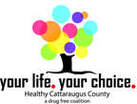Why are we still celebrating the Great American Smoke-out???
On November 19, 2020, we will once again celebrate the Great American Smokeout. This event has been an annual opportunity for people who smoke to commit to healthy, smoke-free lives – not just for a day, but year-round, and has been going strong for over 40 years.
The idea for the Great American Smokeout developed from a 1970 event at which people were asked to give up cigarettes for a day and donate the money they would have spent on cigarettes to a high school scholarship fund. The idea caught on over the next few years, and in November 1976, the California Division of the American Cancer Society got nearly 1 million people who smoke to quit for the day. That California event marked the first official Smokeout, and the American Cancer Society took it nationwide in 1977.
So why in 2020, during a pandemic, do we continue to focus on issues like smoking and vaping? The Great American Smokeout (GASO) draws attention to preventing the deaths and chronic illnesses caused by smoking and vaping. It also still serves as a motivator for individuals to quit smoking (even for a day). An important side benefit of this day is that it has also served to help motivate individuals, organizations, State and Federal governments to begin to explore and enact legislation and policies on tobacco product advertising, marketing to children and tobacco-free environments.
Many states have now enacted strong tobacco control laws that have helped drive positive change. Cigarette smoking has declined over the past fifty years, from 42% in 1965 to 13.7% in 2019, but the declines have not benefitted our population equally. Some groups smoke more heavily or at higher rates and suffer more from smoking-related diseases. These populations tend to be those who experience inequities in multiple areas of their lives, including those at lower socioeconomic levels, those without college degrees, American Indians/Alaska natives, African American/Black communities, LGBTQ communities, those in the military, those with behavioral health conditions, and others.
32.4 million American adults still smoke cigarettes, and smoking is still the largest preventable cause of death and illness in our country and around the world. More than 480,000 deaths in the US are caused by smoking every year. This is 20% of all deaths – every year. To add to that misery, more than 16 million Americans live with a smoking-related disease.
Quitting does improve health both immediately and over the long term. Giving up smoking is a journey, sometimes it can be long and hard, but you can make it easier to succeed if you develop a good plan and have support. Using counseling and medications doubles or triples your chances of quitting successfully.
Visit www.cancer.org to learn more about quitting smoking, improving your health, or getting involved with the Great American Smokeout in your community.
Get help from the NY state smokers’ Quitline
Smoking is an addiction – get help, don’t give up
1-866-NY-QUITS (1-866-697-8487)
Ken Dahlgren
Community Engagement, Tobacco Free CCA
[email protected]


 RSS Feed
RSS Feed